Lifestyle Changes to Lower Your Cholesterol
Changing your lifestyle can reduce or even eliminate your cholesterol and help you stay off cholesterol medication. Some individuals can not get rid of their cholesterol regardless of their family history and age. Still, it can lower your cholesterol and reduce your heart disease risk. Changing your lifestyle will be no easy task so take it one step to feel the amazing benefits of feeling healthy.
Lower Your Cholesterol by Changing Your Lifestyle
- Eat healthily – The unhealthiest eater can start eating healthy anytime to lower their cholesterol and improve his/her health.
DO choose healthy fats by choosing leaner cuts of meat, low-fat dairy items, and monounsaturated fats found in olive oils and canola oils.
DO NOT consume more than 7% of our daily calories from saturated fats. Saturated fat is mostly found in red meat, and dairy products will reduce your total cholesterol and low-density lipoprotein (LDL) cholesterol, which is the bad cholesterol.
DO NOT eat food with trans fat. Eliminate trans fats from your daily food intake because the smallest amount of trans fat will increase, resulting in your bad cholesterol level increasing and lower your good cholesterol. Trans fat increases your risk of a heart attack so, please read the ingredient list and avoid trans fat and food with partially hydrogenated oils. Trans fat is most commonly found in fried foods and commercial products, including cookies and treats.
The United States does not mandate companies to label their food items that contain less than 0.5 grams of trans fat in a serving, so labels with the words “trans-fat-free” might contain trans fat.
DO eat food with omega-3 fatty acids because it does not affect LDL cholesterol and has heart benefits by increasing the good cholesterol known as HDL, high-density lipoprotein. It also reduces your triglycerides, which are a type of fat in your blood, and the omega-3 fatty acids also help reduce your blood pressure.
A few types of fish that contain high amounts of omega-3 fatty acids are salmon, lake trout, sardines, mackerel, albacore tuna, and herring.
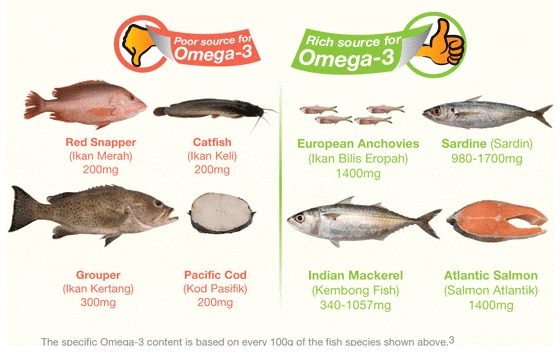
Photo source: abbottlifeplus.com
A few other fish that contain a small amount of omega-3 fatty acids are halibut, river trout, catfish, cod, snapper, and tuna packed in water.
Vegans and those who do not like fish can eat walnuts, flax seeds, and almonds containing omega-3 fatty acids.
DO eat soluble fiber, which helps to lower your LDL levels and has heart benefits. There are two types of fiber, soluble and insoluble. Soluble fiber is easily digested, while insoluble fiber passes through the digestive system close to its original form.

Photo source: everydayhealth.com
Some soluble fibers are oats products, legumes (peas, beans, lentils), fruits, vegetables (especially oranges, apples and carrots), and barley.
Some insoluble fibers are greens (spinach, lettuce, kale, mesclun, collards, arugula, watercress, etc.), Whole (snow, snap, pea pods), peas, green beans, kernel corn, bell peppers, eggplant, celery, etc.
- Exercise regularly and increase your physical activity when exercise becomes easy for you. Exercise can decrease your bad cholesterol and help raise your good cholesterol (HDL), high-density lipoprotein. It is recommended that individuals do about 30 minutes of exercise a day with their doctor’s approval. You can divide your 30-minute workout into 10-minute intervals throughout the day.
Please refrain from exercises that you cannot keep up with or do consistently, so consider things that stay true. A few options are:
- Take a brisk walk during your lunch break, early morning, or whenever you have time.
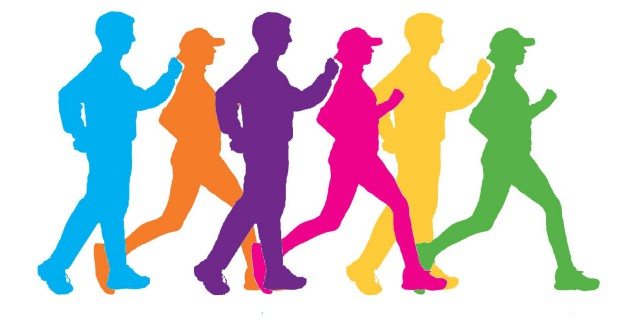
Photo source: sbybiz.com
- Ride your bike to work or walk to work if you do not work far from home.
- Swim a few laps.
- Play your favorite sport with a team or your family/kids.
- Ask a friend or neighbor to join you every day to exercise or participate in a group. Having someone to exercise with will help to motivate you and keep you from slacking off.
- Take the stairs instead of using the elevator.
- Do sit-ups or minor exercises while watching T.V.
- Use a pedal exercise bike while watching T.V or while sitting at your desk at work. Walking/running on NordicTrack Treadmills is also a terrific idea.
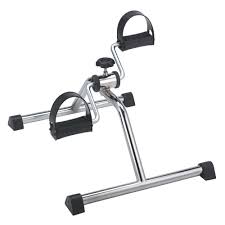
Photo source: homedepot.com
- Stop Smoking: Quitting smoking will help you to improve your HDL cholesterol amongst promoting other health benefits. Your blood pressure and heart rate will decrease within 20 minutes or so after quitting smoking, and you will lower your risk of heart disease by half after not smoking for one year. After not smoking for fifteen years, your heart disease risk will be similar to a person who has never smoked in their life.
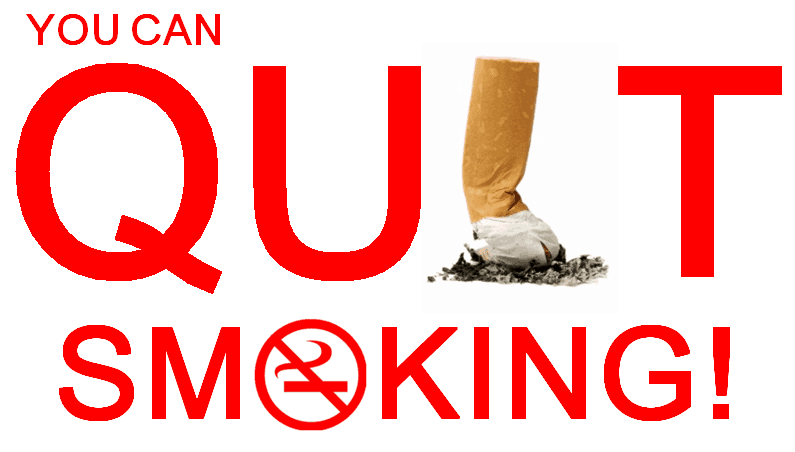
Photo source: quitsmokingcommunity.org
- Lose weight: Extra weight may contribute to high cholesterol, and losing about 5 to 10 percent of your weight might improve your cholesterol levels.
Individuals who would like to lose weight should start by evaluating their daily eating lifestyle. He/she should think about what he/she can change their daily eating habit to help them improve their cholesterol.
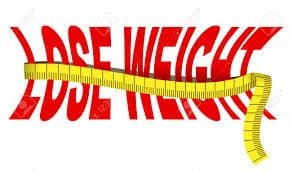
Photo Source: 123rf.com
The smallest change can/will add up, and you will be thrilled with the results. Some people like me eat when they are frustrated, depressed, stressed, bored, etc. We should change that bad habit and go for a walk or jog instead.
Those of us who like to eat out every day for lunch and our options are not healthy should try packing a healthy lunch to work every day. I now enjoy snacking on carrots (I cut them into sticks because they are easier to bite/chew), celery sticks, air fried chips/chickpeas/peas, and air popcorn.
- Alcohol: We should drink alcohol only in moderation because alcohol contributes to raising your HDL cholesterol level. Healthy adults should drink no more than one drink a day; for all females, regardless of age, and males at the age of 65-years-old. Healthy men under 65-years-old can drink up to two glasses a day.
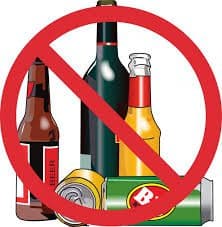
Photo Source: asonor.com/blog
We all know that too much alcohol can result in serious health problems such as, but not limited to, high blood pressure, stroke, and heart failure/disease.
- Supplements: Add supplements to your diet because certain supplements can improve your cholesterol level if eating healthy is not enough. Three supplements that can help you with the approval of your doctor are:
- Plant sterols and stanols might help your body from absorbing cholesterol. Sterols are added to margarine, spreads, orange juice, yogurt, dietary, and a few other products. Stanols can be found in some supplements.
- Omega-3 fatty acids with at least 1,000 mg of EPA and DHA can help you with heart disease/high triglycerides.
- Red yeast rice is a common seasoning in Asian countries that can help your body reduce the amount of cholesterol your body makes. Red yeast rice is available as a dietary supplement, but as always, please talk with your doctor before taking red yeast rice or any other medications.
7. Dried Apples: Snack on dried apples because according to a study published in the Journal of the Academy of Nutrition and Dietetics – participants that ate 1 cup of dried apples every day lowered their LDL (bad) cholesterol levels by 13 percent within six months. So it is wise to keep dried apples on hand because you can quickly eat them when temptation kicks in for junk food.
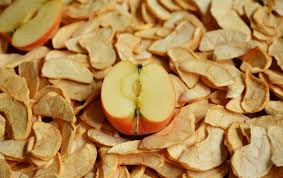
Photo Source: pixabay.com
Some individuals may not see their results immediately, but please do not get discouraged because all of us are different, and we all will see our results at various times.
For those who take medication to lower our medicine, you should also try to lower your cholesterol naturally while still taking your medication.
Additional resources: mayoclinic.org, everydayhealth.com





![[Easy] How to Lower Cholesterol Levels Food Diet](..\wp-content\uploads\2017\08\cholesterol-free-food-768x512.jpg)
